SA Weekend cover story: Uyghur family’s bid to free daughter from Chinese detention camp
An elderly Adelaide couple, already touched by personal tragedy, is fighting to free a daughter detained in a notorious detention centre by a Chinese government accused of mass ethnic cleansing.
SA Weekend
Don't miss out on the headlines from SA Weekend. Followed categories will be added to My News.
- US Ambassador meets Adelaide Uyghurs
- US Bill pressures China over Uyghurs
- What next for Australia’s Uyghurs?
They wear old sadness across their brow and their eyes betray sleepless nights of more recent suffering under the roof of their Adelaide home.
Seven years ago, Uyghur migrants Yakub Sabir, 73, and Bahar Mamtimin, 64, purchased a conventional 1960s, three-bedroom, one-bathroom, cream brick house in suburban Adelaide.
The married couple of 45 years were certain the house would become a haven for their family of three children, one still living in China, and a growing brood of grandchildren.
Instead, the house has continued the nightmare of a Communist regime they had hoped to have left behind.
Sabir and Mamtimin are Uyghurs – a Muslim minority being detained in their hundreds and thousands in suspected ethnic cleansing camps run by Chinese authorities. The couple migrated to Adelaide in July 2007 and were granted residency in Australia under humanitarian grounds.
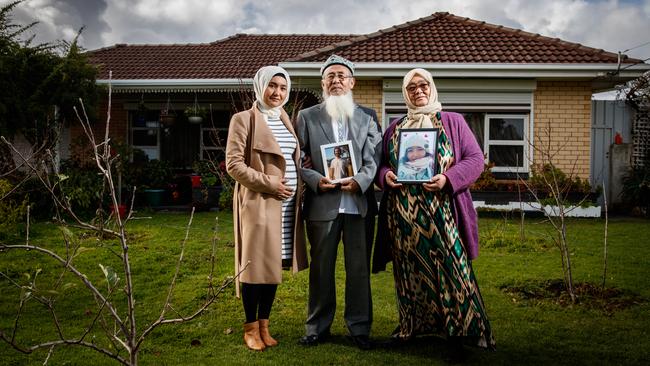
It is estimated that over the last three years more than a million Muslim minorities, including Uyghurs, have been detained in what Beijing calls “transformation-through-education” or “vocational training” centres in Xinjiang – the Uyghur Autonomous Region in northwestern China.
Earlier this month, US federal authorities seized a shipment of products made from human hair, believed to have been taken from Uyghurs in China’s camps.
Last month, fresh allegations emerged of Chinese officials sterilising Uyghur women to curb the Muslim population.
Sabir and Mamtimin’s eldest daughter, who did not migrate to Australia with her parents, was detained in such a camp for 10 months in 2018.
Her relatives living in Xinjiang say a previously healthy and fit Mahira Yakub, 42, emerged from detention with liver damage. They suspect her poor health was the result of starvation, and/or physical abuse.
Within four months of her release from the camp, Mahira was arrested and jailed by Chinese authorities. Her location and the reason for her detention were not disclosed to family members either in Xinjiang or Adelaide.
It was only after Mahira’s Adelaide family sought help from the Australian Department of Foreign Affairs and Trade (DFAT) that her situation became clearer – she was accused of financing terrorism.
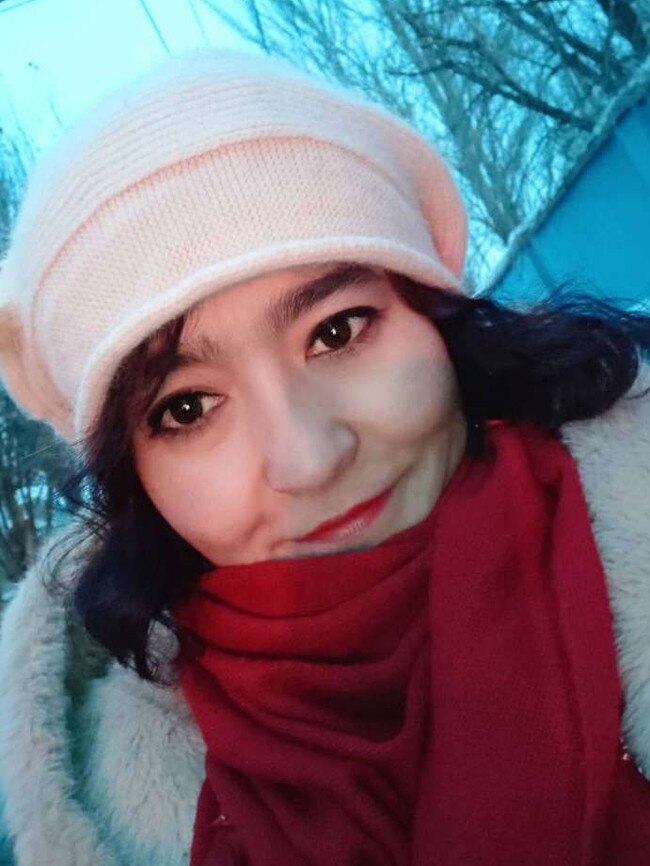
Financial statements viewed by SA Weekend show Mahira’s sent money to her parents in Adelaide in July 2013 so that they could complete the purchase of their modest Valley View home.
Mahira had transferred about $53,000 to her parents’ Adelaide bank account. Her aunt and uncle – with whom she lives in Xinjiang – transferred about $54,000 and $28,000 respectively.
The family says the money was from savings accrued by Mahira’s parents after years of retail trading in Xinjiang and compensation for land sold to the Chinese. Mahira – a single mother of three children – is expected to face trial in a Chinese court this month, without independent legal representation.
The Yining detention centre is the pre-trial prison in Xinjiang where she has been detained for more than a year. It is notoriously cramped (an additional health concern during COVID-19) and sentences for those charged with the same crime are long – up to several years or more. The death penalty could apply.
“I wish I could switch places with my daughter,” Sabir says. “We managed to build a new life in Australia – a better life for our children and grandchildren. Now it feels like we’re eating the fruit while she’s stuck with the seeds.”
It is not their only loss. Five months after reaching Australian shores, Sabir and Mamtimin’s 31-year-old son, who had been living in Australia with his young family since 2000, drowned at Waitpinga Beach, near Victor Harbor.
Yakun Yakub died on the last day of 2007 and his lifeless body was dragged from the water in front of his father’s eyes. The father and son had been fishing and picnicking with other members of the Adelaide Uyghur community when misfortune struck.
Sabir and Mamtimin were left to care for themselves, their granddaughters (aged one and two at the time) and their daughter-in-law. They had little money, no language and no family to rely on.
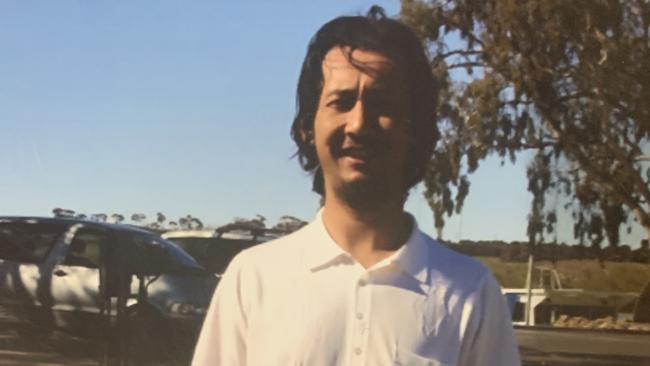
They refused to live on handouts and so began tirelessly working in Sunday markets across Adelaide selling produce to eventually save enough money to start a family business. Their restaurant – Tangritah Uyghur Restaurant in Grote St – is well known across Adelaide for its authentic Uyghur culture and cuisine.
“We have already lost a son,” Mamtimin says. “Now we’re losing our daughter. The first one brought me agony, but it was an accident. But for my daughter, she is an innocent victim of a genocidal policy. The helplessness we feel can’t be described. We can only stand and watch.”
The family has made countless appeals to DFAT, Australian politicians and Chinese officials here and abroad.
In June, Amnesty International Australia began an online campaign calling on the Australian and Chinese authorities to free Mahira.
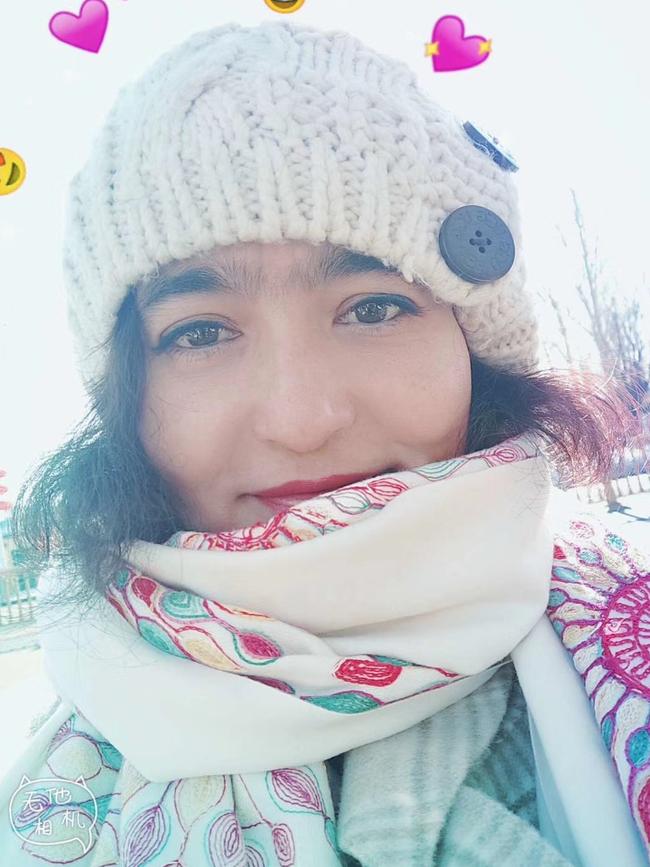
More than 24,000 signatures have been added to the petition urging the Chinese government to drop charges or give Mahira a fair trial in line with international standards, and ensure she is not subjected to torture and other ill-treatment.
The Australian government has advised the family it cannot intervene in the Chinese judicial process.
“There are limits to what we can do within China for non-Australian citizens such as your sister,” a DFAT email to Mahira’s sister, Marhaba Salay, dated September last year, says.
First cousin Nyrola Elima, 35, who lives in Sweden, says Mahira just “disappeared without a trace”.
Elima’s parents live in Xinjiang with Mahira and her children, aged 13 to 18. They too have been charged, but not arrested, for their part in transferring money to Mahira’s parents.
“My parents have not heard from her since they took her. No one, not even a lawyer is allowed to visit her,” Elima says. “We have no idea the last time she ate or if she’s being tortured during interrogation.”
The experience of Mahira and her Adelaide family is far from unprecedented.
International media reports are peppered with stories of Uyghurs being arrested and jailed in Xinjiang on suspicion of financing terrorism after sending money to relatives overseas.
Chinese authorities are also accused of aggressively severing the links between Uyghurs in Xinjiang and overseas family members. Many fear electronic communications are being monitored and cease all communication with overseas relatives for fear of retribution.
“It is an experience that is reported time and time again by the Uyghur diaspora community now in Australia and those who have found safe haven elsewhere across the world,” Amnesty International Australia Individuals At Risk campaigner Rose Kulak says. “Each case, though unique, has similar elements. But it’s all part of the systematic human rights abuse of Uyghurs.”
Kulak says many believe the camps – where detainees are subjected to political indoctrination, forced to renounce their religion and culture, and subjected to torture – are a government-led program of cultural elimination.
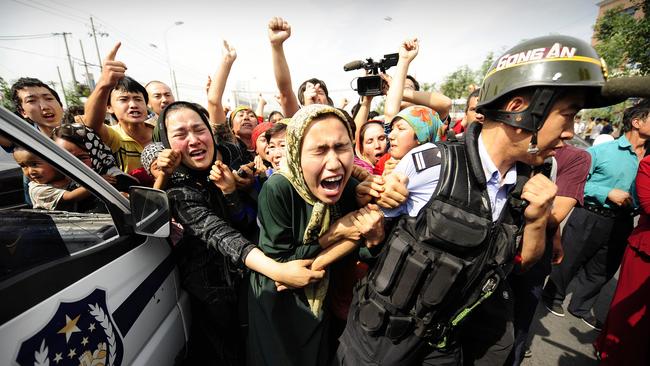
He says the Australian Government needs to do more to put international pressure on the Chinese government to allow independent monitors into the region and to protect Australian Uyghurs from intimidation.
Last month, the US Congress passed legislation mandating sanctions against those responsible for the oppression of China’s Uyghur Muslims.
South Australian Labor Senator Penny Wong says the ALP is “deeply concerned” about the arbitrary detention of Uyghurs and other ethnic and religious minorities in Xinjiang and called on the Chinese government to uphold its international human rights obligations.
“This must be an incredibly difficult and distressing time for Mahira’s family,” Wong says.
A DFAT spokesman says there is limited departmental support available to people overseas who are not Australian citizens.
“Under our bilateral consular agreement, China allows access only to Australian citizens who have entered China on an Australian passport,” he says.
“The Australian Government has serious concerns about the treatment of Uyghurs in China and has consistently urged China to cease the arbitrary detention of Uyghurs and other Muslim groups in Xinjiang.”
The Chinese Embassy in Canberra did not respond to a request for comment.
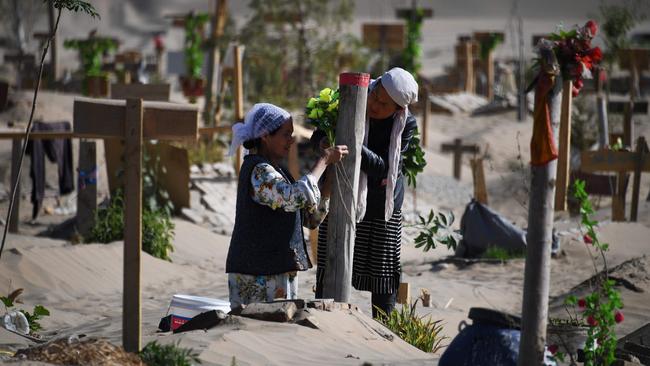
More than 1500 Uyghurs call South Australia is home – about 60 per cent of the total Uyghur population in Australia.
Nurmuhammad Majid, president of the East Turkistan Australia Association in Gilles Plains, says members of Adelaide’s Uyghur community have reported Chinese authorities using social messaging apps and direct phone calls to track, threaten and intimidate.
He says a common tactic involves frequent calls from the Chinese embassy in Canberra confirming names, dates of birth, addresses and other personal details.
Adelaide-based Eldana Abbas, a Uyghur activist and interpreter from Xinjiang, has told Amnesty International she had received calls from the Chinese Embassy in 2018 and 2019 which left her fearing for both her and that of her family back home.
“I felt like I needed to watch out for people around me and around my house,” she has said.
Abbas told the human rights group she had seen individuals and groups she believed were Chinese agents photographing her and her friends.
Majid says family members in Xinjiang had been interrogated, arrested and jailed because overseas relatives were perceived as political threats and accordingly labelled “terrorists”, “extremists” and “radicals”.
The community leader, a vocal opponent of the Communist regime, says authorities have seized his three brothers and two sisters, and believes one of his sisters was admitted to hospital more than 10 times during incarceration.
“The majority of South Australian Uyghur families have one or more stories to tell of agony, pain and deep sorrow,” he says. “Everyone has heart-wrenching stories.”
The last time Mahira had direct contact with her family in Adelaide was in January last year.
“That’s when everything went quiet,” says Mahira’s younger sister Marhaba Salay, who migrated to Adelaide in 2011 to support her parents.
Salay, a university student at the time, tried to rush to her parents’ aid after her brother’s death. “My parents were every alone,” she says.
But the Chinese government repeatedly refused to issue her a passport and it took more than three years to be by her parents’ side. By then, she said, they were suffering great stress and depression.
“They cried for two years,” Salay says.
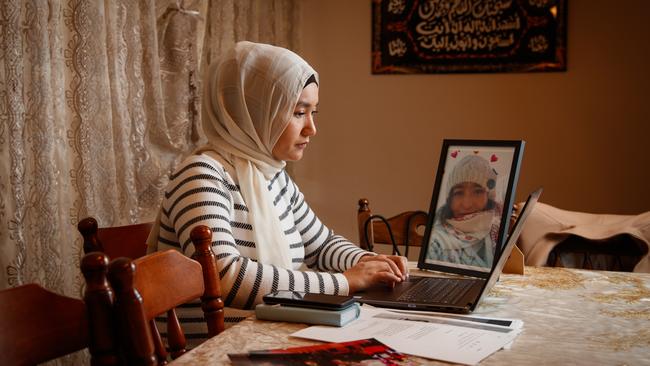
Salay had to leave her sister behind in Xinjiang.
Mahira was dedicated to the education of her three children and worked tirelessly to support them.
She would sell walnuts at early morning markets, before working all day at an insurance company, where she was recognised for her talent.
Upon returning home from work, Mahira would teach Mandarin Chinese to Uyghur children.
“My sister is the most beautiful and soft-hearted woman,” Salay, 32, says.
“She is kind, sweet but also strong at the same time because she knows that she has to be a mum and a dad for her children. She always places humanity and education first.
“I just can’t accept that my sister is suffering. She deserves so much better than this. I miss her so much.”
Salay said she and her parents last saw Mahira in 2015 during a family holiday in Malaysia.
The family hoped Mahira and her children would eventually join them in Australia, but changes to Australia’s visa system had made it impossible for them to immigrate under humanitarian grounds.
Salay said red flags began to appear in October 2017.
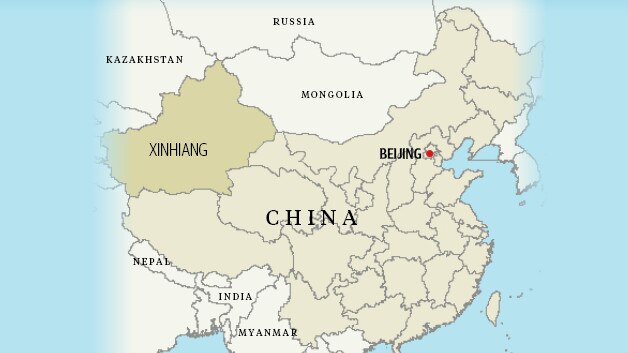
“My sister told me not to call her anymore on the phone or send her any messages, and not to contact her in any way. I asked why and she told me not to ask.”
But, like many in their situation, Salay found a way to look out for her sister indirectly using social media.
“Mahira deleted all of us from her social media accounts, so we searched for her to check to see if she is posting anything,” Salay says. “That is the only way we know how she is safe without leaving any trace that would put her in danger.
“When Mahira would post about the weather or an event she was attending, then I would know she was OK.”
The last post Mahira made was just before her arrest in April.
“We’ve heard nothing since,” Salay says, cradling her belly. She is 26 weeks’ pregnant with her second child. Mahira is yet to meet Salay’s three-year-old daughter.
“My sister is innocent,” she says. “She is being punished for helping her parents. We are not terrorists.
“We live like normal South Australians – we wake up and go to work and we come home to spend time with our families, to make our lives better.”
